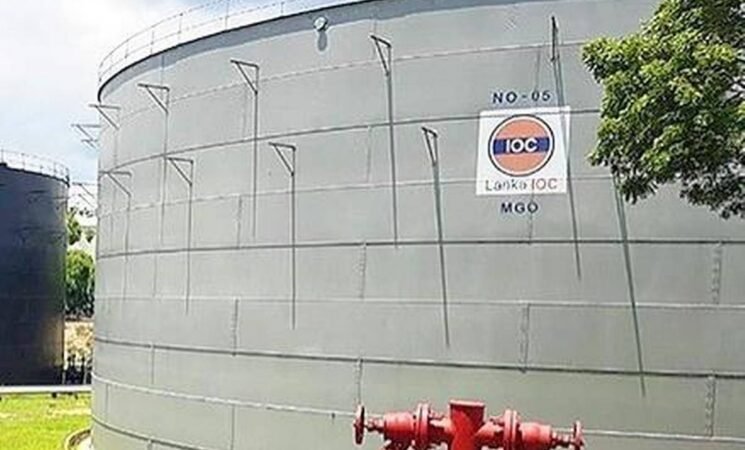8 January 2022, NIICE Commentary 7593
Mithuna Jayadev Unnithan
The latest economic partnership within the subcontinent is the Trincomalee Oil Farm deal signed between India and Sri Lanka in early January 2022. This deal has been in the making for decades and has its origin in the Indo-Lankan Accord of 1987. Though the historic peace accord itself did not refer to any economic venture, it did mark the beginning of new cooperation between the two states. After the signing of the accord, both Rajiv Gandhi and J.R. Jayewardene initiated an exchange of letters and agreed to develop the Trincomalee Oil Tank Farm as a joint venture between India and Sri Lanka.
The accord did not set out to achieve its goals, to say the least, and the Indo-Lankan relationship has been tumultuous ever since. But both states have always found enough common ground to maintain a bilateral relationship which has had its ups and downs based on the different governments that were in power.
However, this Trincomalee Oil Tank Farm deal can be the perfect restart for a relationship that had hit a new low in 2021, when Sri Lanka had unilaterally reneged on the agreement to develop the East Coast Terminal (ECT) of the Colombo port. The ECT plan was a 2019 tripartite agreement between Sri Lanka, India and Japan to redevelop the container terminal. Interestingly the ECT is also located right next to the Colombo International Container Terminal (CICT) project (a joint venture between China and Sri Lanka) and just 3kms away from the China-backed international financial city called Port City (which is a part of China’s BRI). The strategic location of the container terminal in the Indian Ocean Region (IOR), combined with the fact that over 70 per cent of its transhipment business is linked to India, made it extremely important to the Indian state. When the ECT project fell apart, India lost a golden opportunity to expand its influence as China’s footprint in and around Colombo grows. The ECT setback was joined the likes of other Indian investment projects in Sri Lanka like the Mattala Rajapaksa International Airport and the 500MW Sampur Coal Power Plant (which would have become the largest single India assisted projects in Sri Lanka if implemented). Both these projects failed to take off at the last moment due to Sri Lanka’s complicated domestic politics and policy decisions. These successive failures in the face of burgeoning Chinese investment in Sri Lanka prompted India to seek out newer opportunities and revisit older ideas.
The current economic dispensation of the Sri Lankan state seems to have turned the tides in India’s favour. The Covid-19 pandemic has been unkind to the island nation, forcing it into a declared emergency since September 2021. The loss of income from tourism has pushed the country into a foreign exchange crisis and it is on the verge of defaulting its debt repayments (most of which is owed to China). The Lankan government has recognised the dangers of putting all its eggs in the Chinese basket and is now actively looking for a financial lifeline from India including lines of credits for fuel and food imports. Sri Lanka could hope to procure these lifelines only if it enabled Indian investments again.
This has led to the approval of the Trincomalee Oil Tank Farm development project by the Lankan cabinet. The pre-WW2 era oil storage facility with a capacity of nearly 1 million tonnes will be refurbished in phases to ensure energy security in the region. Trincomalee is located 260 km from Colombo and is also the nearest port to Chennai. The proximity of Trincomalee to India made this opportunity especially enticing for India. As expected, within days of announcing this new economic partnership, the Indian government has extended aid of USD 900 million and reviewed an additional USD 1.5 billion credit to Sri Lanka for the import of food, medicine and other essential items.
Both nations have masterfully leveraged their abilities to reach a mutually beneficial agreement. India finally gains control over a strategic location in the IOR to counter China and Sri Lanka finds a solution to its forex crunch. These along with the common benefit of a regional petroleum hub, make this deal a perfect opportunity for both countries to move past the ECT setback. Thus, the Trincomalee Oil Tank Deal has the potential to take the Indo-Lankan bilateral relations to a new level and infuse new vigour into the partnership if it survives any political miscalculations. But given the record of the two neighbours, it won’t be pessimistic to anticipate a remote possibility of Sri Lanka reversing its decision to go ahead with the project.
Mithuna Jayadev Unnithan is a Research Intern at NIICE.

